Transforming Your Living Room with the Perfect Accent Armchair
Your living room is more than just a space; it’s the heart of your home, a sanctuary for relaxation, and a hub for social gatherings. It reflects your personality, style, and the warmth you want to share with family and friends. One of the most impactful ways to elevate your living room’s ambiance is through the careful selection of an accent armchair. A well-chosen armchair not only provides comfortable seating but also acts as a focal point, injecting character, color, and texture into the room.
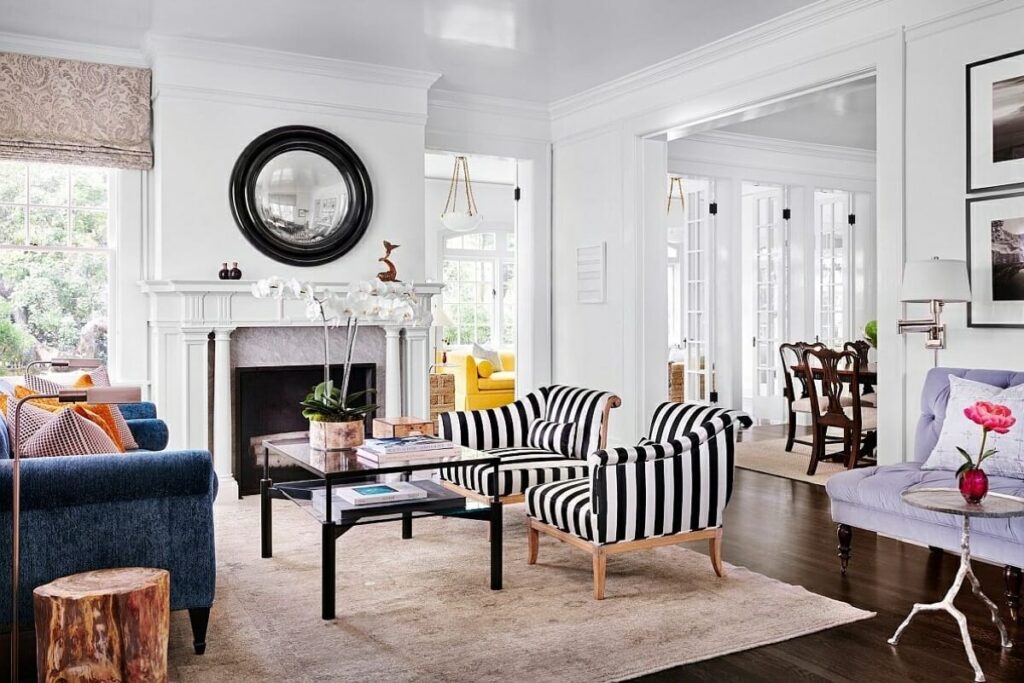
But with a plethora of styles, materials, and designs available, choosing the right armchair can feel overwhelming. This comprehensive guide will walk you through every aspect of selecting the perfect accent armchair, ensuring it complements your existing decor while adding a touch of sophistication and comfort to your living space. We’ll explore everything from understanding your style and space to choosing the right fabric and placement, helping you create a living room that’s both beautiful and functional.
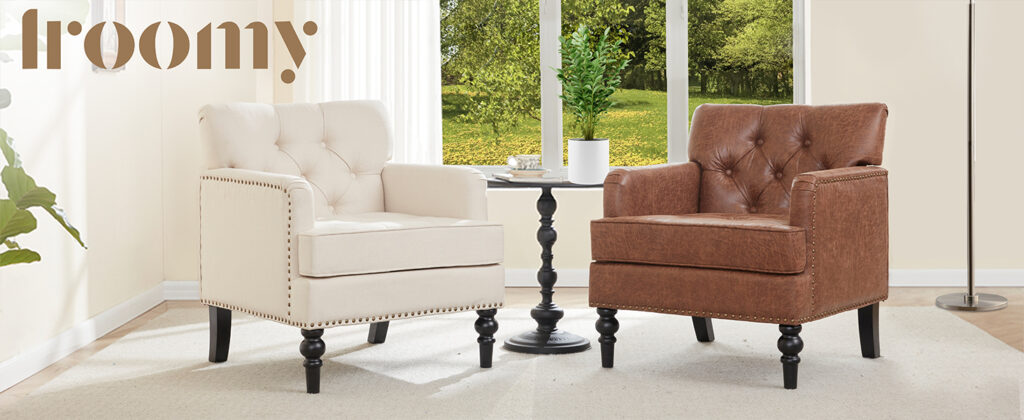
Understanding Your Style and Space
Before diving into the vast world of armchairs, it’s crucial to understand your personal style and the specific characteristics of your living room. This self-assessment will guide your choices and prevent costly mistakes.
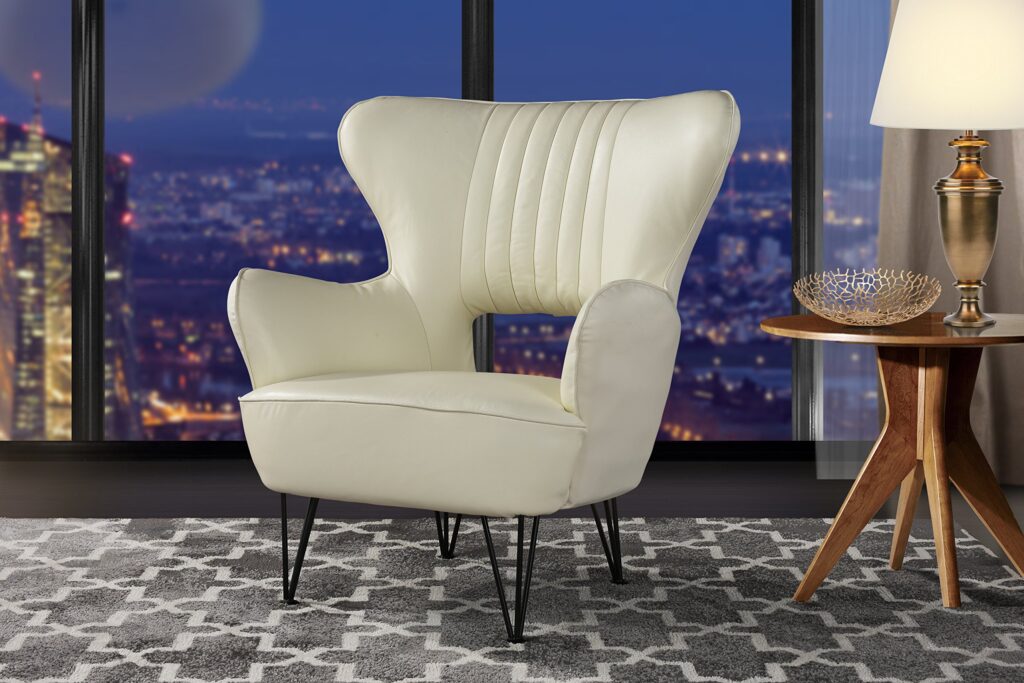
Identifying Your Interior Design Style
Are you drawn to the clean lines and minimalist aesthetic of modern design? Or perhaps you prefer the warmth and intricate details of traditional styles? Maybe you’re a fan of the eclectic mix of vintage and contemporary pieces. Identifying your core design style is the first step in choosing an armchair that seamlessly integrates into your living room. Consider these popular styles:
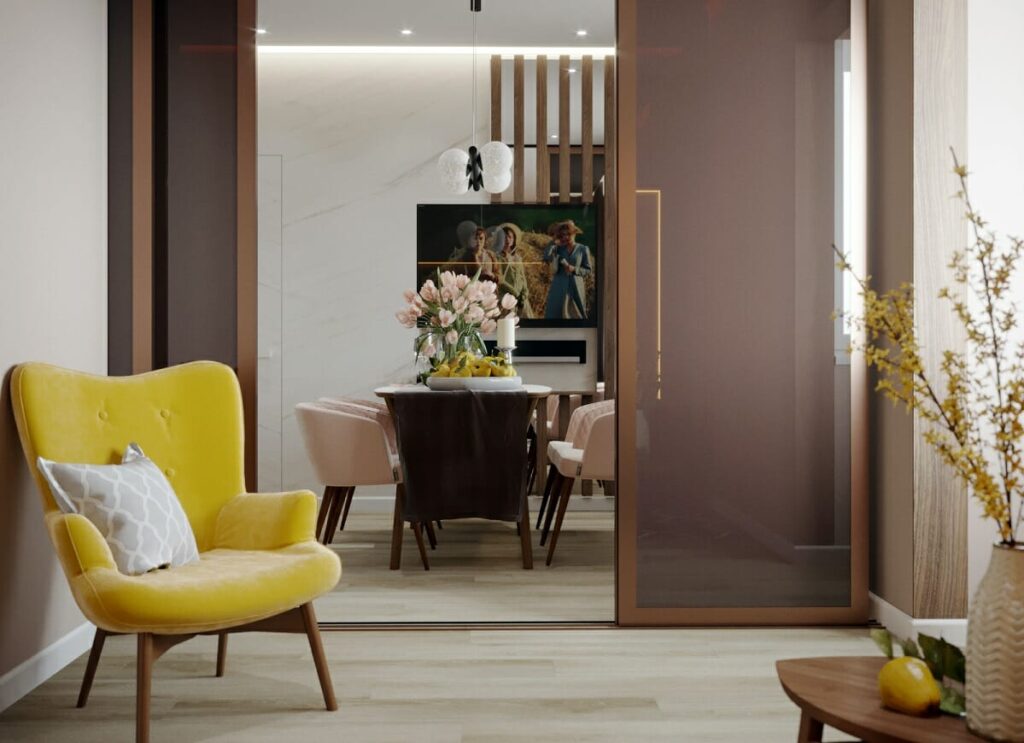
- Modern: Characterized by clean lines, neutral colors, and minimalist design. Think sleek shapes, geometric patterns, and a focus on functionality.
- Traditional: Emphasizes classic elegance, rich colors, and intricate details. Look for armchairs with rolled arms, tufted upholstery, and ornate wood accents.
- Contemporary: A constantly evolving style that reflects current trends. It often incorporates elements from various styles, resulting in a fresh and innovative look.
- Bohemian: A free-spirited and eclectic style that embraces bold colors, patterns, and textures. Think velvet, macrame, and globally inspired designs.
- Mid-Century Modern: A retro style from the 1950s and 1960s characterized by clean lines, organic shapes, and a focus on functionality. Look for armchairs with tapered legs, simple silhouettes, and vibrant colors.
- Farmhouse: A cozy and inviting style that emphasizes rustic charm and natural materials. Think distressed wood, neutral colors, and comfortable fabrics like linen and cotton.
Browse through interior design magazines, websites, and social media platforms like Pinterest and Instagram to gather inspiration and identify the styles that resonate with you.
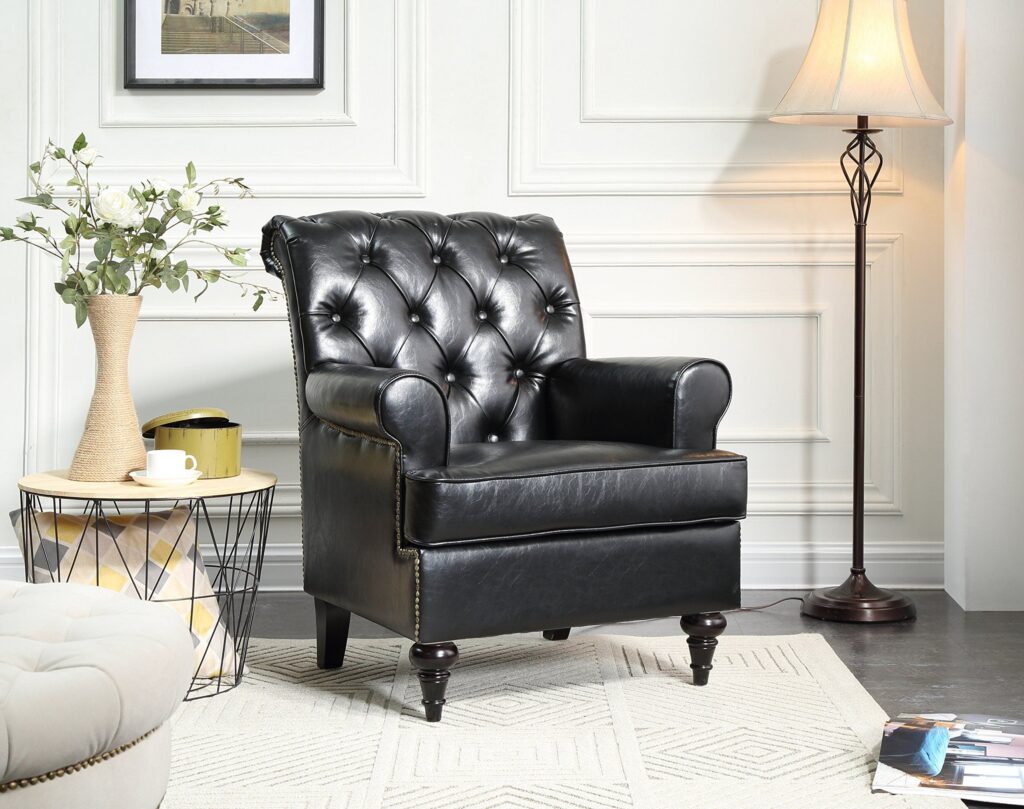
Assessing Your Living Room’s Dimensions and Layout
Once you’ve identified your style, it’s time to assess your living room’s dimensions and layout. Measure the available space to ensure the armchair fits comfortably without overcrowding the room. Consider the following factors:
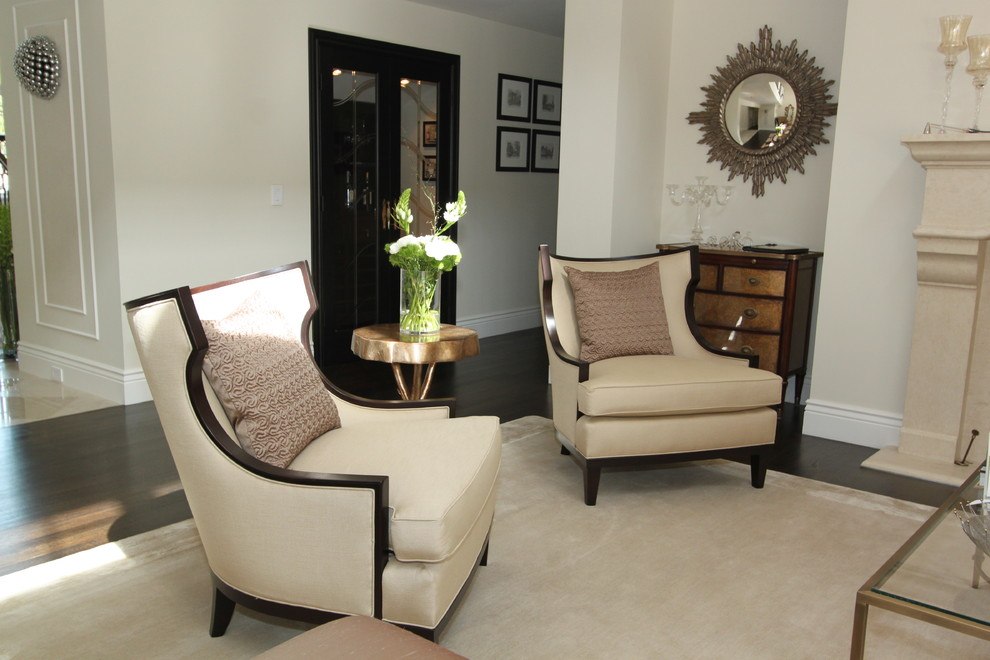
- Room Size: A large living room can accommodate a generously sized armchair, while a smaller space might require a more compact design.
- Existing Furniture: Consider the size and style of your existing sofa, coffee table, and other furniture pieces. The armchair should complement these elements without overpowering them.
- Traffic Flow: Ensure the armchair doesn’t obstruct pathways or create awkward traffic patterns.
- Focal Points: Identify existing focal points in the room, such as a fireplace or a large window. Position the armchair to enhance these features and create a balanced composition.
Use masking tape to mark the dimensions of the armchair on the floor to visualize its placement and ensure it fits comfortably within the space.
Choosing the Right Armchair Style
With a clear understanding of your style and space, you can now explore the various armchair styles available. Each style offers a unique aesthetic and level of comfort, so choose one that aligns with your personal preferences and the overall design of your living room.
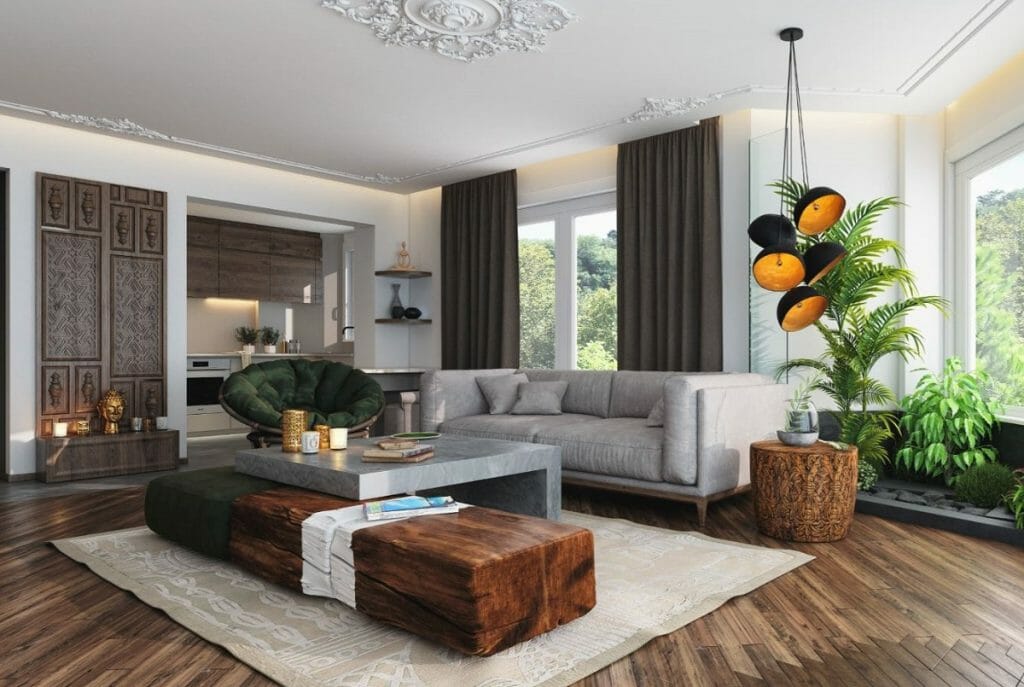
Popular Armchair Styles to Consider
- Club Chair: A classic armchair with a low back, deep seat, and rolled arms. Often upholstered in leather or velvet, club chairs offer a luxurious and comfortable seating experience.
- Wingback Chair: A stately armchair with high back and distinctive side wings. Wingback chairs provide excellent support and a sense of enclosure, making them ideal for reading or relaxing.
- Slipper Chair: A low-profile armchair without arms, perfect for smaller spaces or for adding a touch of casual elegance to a room.
- Barrel Chair: A curved armchair with a rounded back, resembling a barrel cut in half. Barrel chairs offer a comfortable and supportive seating experience.
- Accent Chair: A broad category encompassing a wide variety of armchair styles designed to add visual interest and personality to a room. Accent chairs can feature bold colors, unique patterns, and distinctive shapes.
- Swivel Chair: A chair with a base that allows it to rotate, offering flexibility and convenience. Swivel chairs are great for conversation areas or for rooms with multiple focal points.
Consider the specific features and benefits of each style to determine which one best suits your needs and preferences.
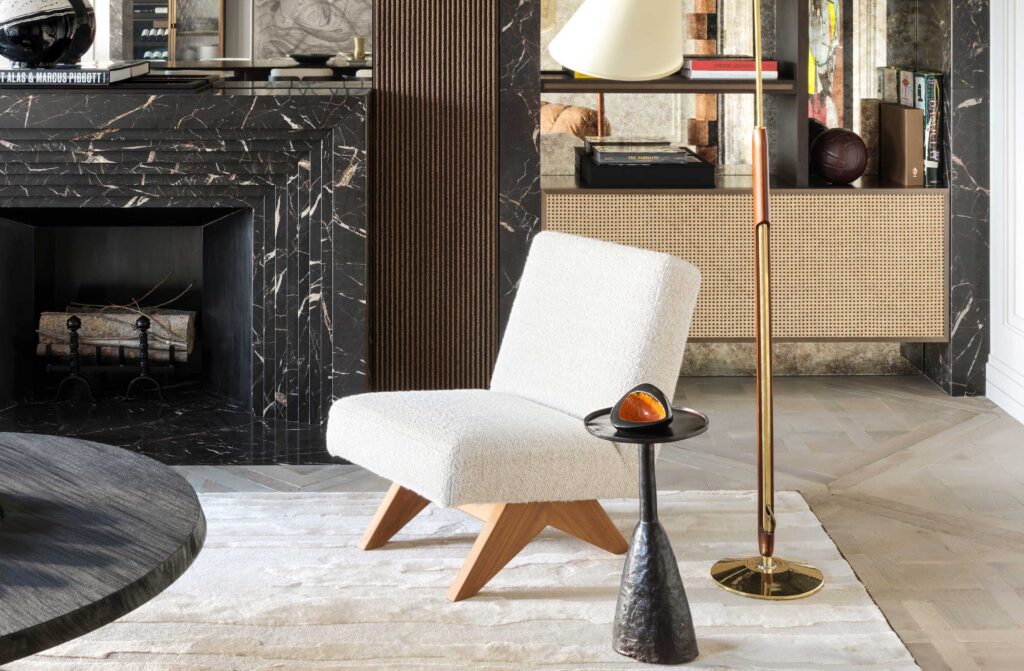
Matching Armchair Style to Your Interior Design
The armchair style should complement your existing interior design to create a cohesive and harmonious look. Here are some guidelines:

- Modern: Opt for armchairs with clean lines, geometric shapes, and minimalist designs. Choose neutral colors like gray, white, and black, or add a pop of color with a bold accent.
- Traditional: Select armchairs with rolled arms, tufted upholstery, and ornate wood accents. Choose rich colors like burgundy, navy, and emerald green, or opt for classic patterns like floral or paisley.
- Contemporary: Embrace a mix of styles and experiment with different shapes, colors, and textures. Look for armchairs with unique silhouettes and innovative designs.
- Bohemian: Choose armchairs with bold colors, patterns, and textures. Look for velvet, macrame, and globally inspired designs. Consider adding fringe or tassels for a touch of whimsy.
- Mid-Century Modern: Opt for armchairs with tapered legs, simple silhouettes, and vibrant colors. Look for materials like wood, vinyl, and metal.
- Farmhouse: Select armchairs with distressed wood, neutral colors, and comfortable fabrics like linen and cotton. Consider adding a throw blanket or pillow for extra coziness.
Don’t be afraid to mix and match styles, but ensure there’s a common thread that ties the elements together, such as color, texture, or material.
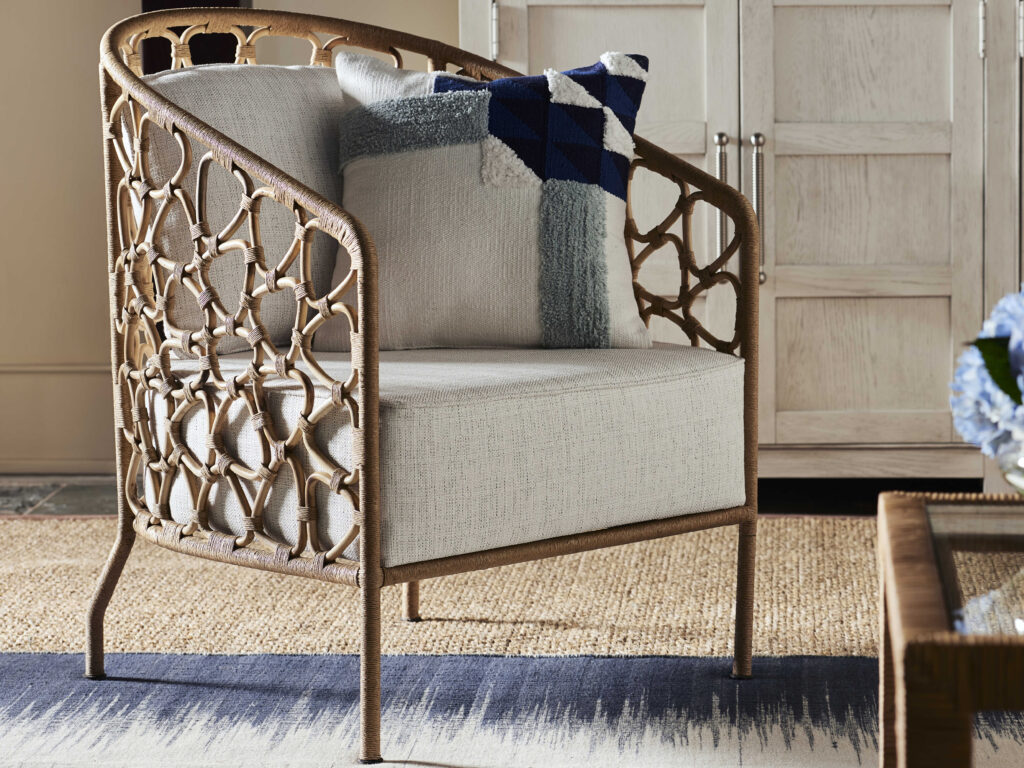
Selecting the Right Fabric and Materials
The fabric and materials of your armchair play a crucial role in its overall look, feel, and durability. Choose fabrics that are both aesthetically pleasing and practical for your lifestyle.
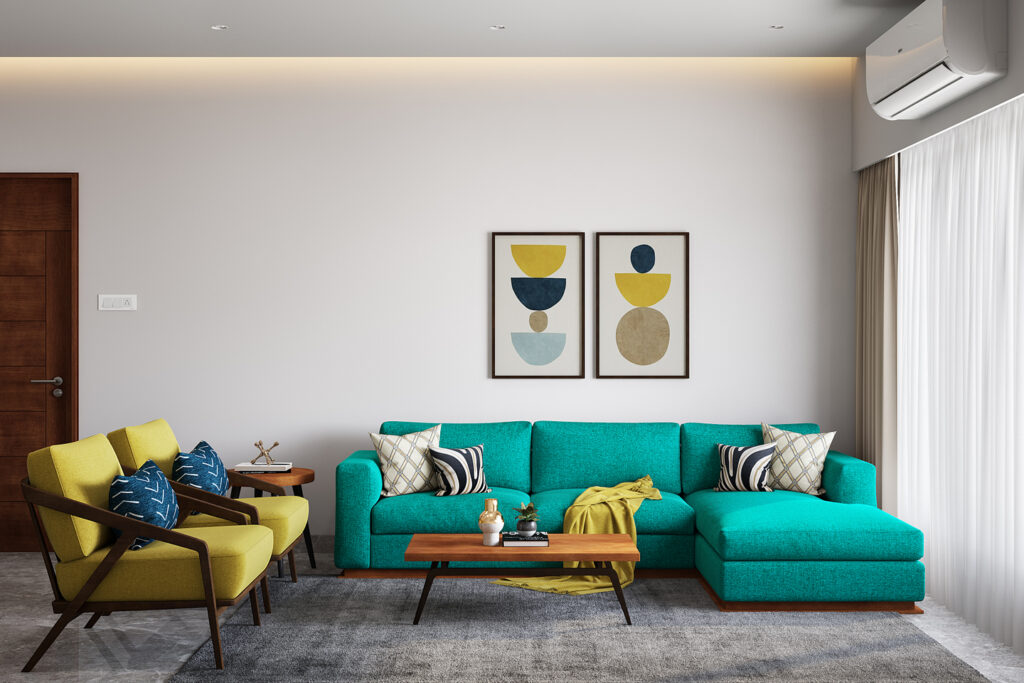
Understanding Different Fabric Options
There’s a wide array of fabric options to choose from, each with its own unique characteristics:
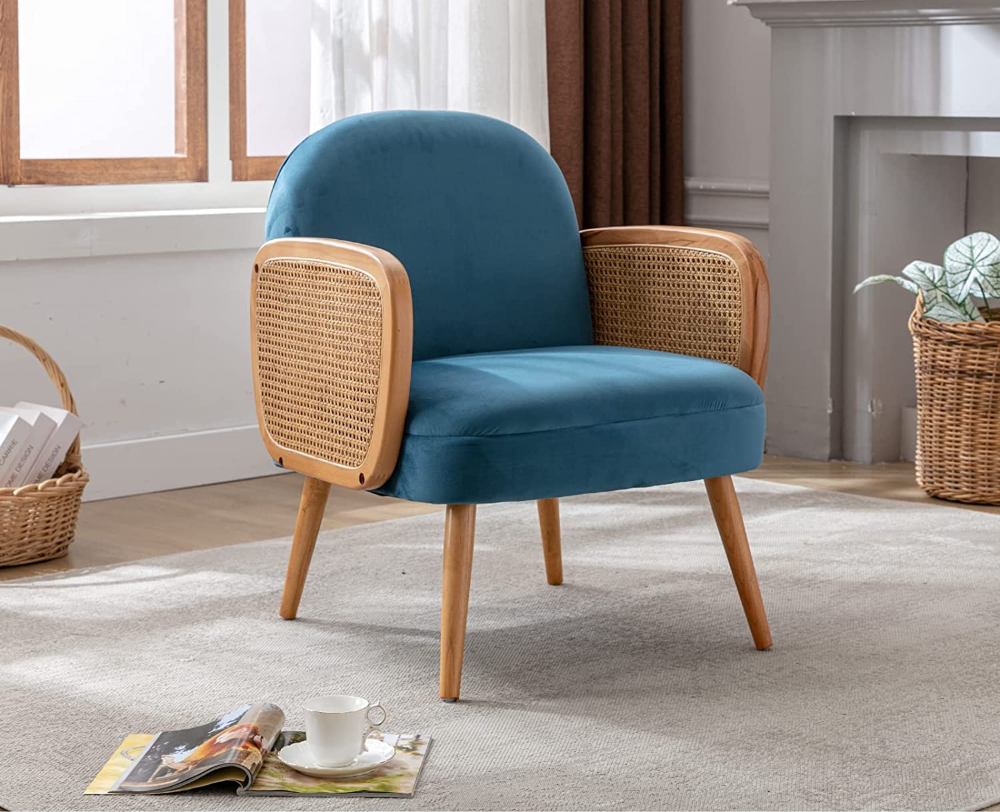
- Leather: A durable and luxurious material that adds a touch of sophistication to any room. Leather is easy to clean and maintain, but it can be expensive and prone to scratches.
- Velvet: A soft and plush fabric that adds a touch of glamour to a room. Velvet is available in a variety of colors and textures, but it can be delicate and require special cleaning.
- Linen: A natural and breathable fabric that adds a relaxed and casual feel to a room. Linen is durable and easy to care for, but it can wrinkle easily.
- Cotton: A versatile and affordable fabric that is available in a wide range of colors and patterns. Cotton is easy to clean and maintain, but it can fade over time.
- Polyester: A synthetic fabric that is durable, stain-resistant, and affordable. Polyester is a good choice for high-traffic areas or for households with children and pets.
- Wool: A natural and durable fabric that is warm and comfortable. Wool is resistant to stains and odors, but it can be expensive and require special cleaning.
Consider the pros and cons of each fabric option before making a decision. Think about your lifestyle, budget, and aesthetic preferences.
Considering Durability and Maintenance
Durability and maintenance are important factors to consider, especially if you have children or pets. Choose fabrics that are stain-resistant, easy to clean, and resistant to wear and tear.
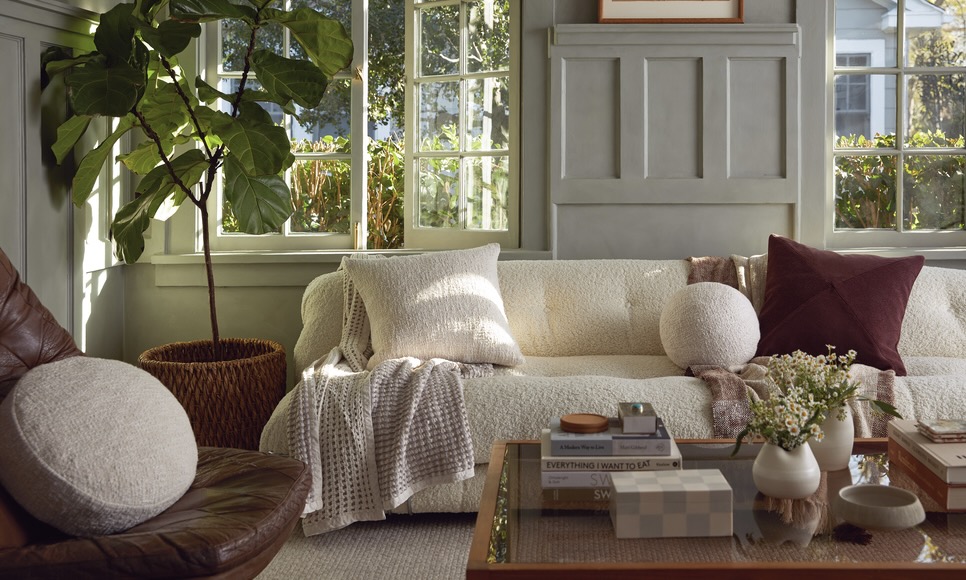
- Leather: Easy to clean with a damp cloth and leather conditioner.
- Velvet: Requires professional cleaning or spot cleaning with a mild detergent.
- Linen: Machine washable or dry cleanable, depending on the fabric type.
- Cotton: Machine washable and dryer safe.
- Polyester: Machine washable and dryer safe.
- Wool: Requires professional cleaning or spot cleaning with a mild detergent.
Read the care instructions carefully before purchasing an armchair to ensure you can properly maintain the fabric.

Exploring Color and Pattern Options
The color and pattern of your armchair can significantly impact the overall look and feel of your living room. Choose colors and patterns that complement your existing decor and reflect your personal style.
- Neutral Colors: Versatile and timeless, neutral colors like gray, white, and beige can be easily incorporated into any design scheme. They provide a calming and sophisticated backdrop for other elements in the room.
- Bold Colors: Add a pop of personality and energy to your living room with bold colors like red, blue, or green. Use bold colors sparingly to avoid overwhelming the space.
- Patterns: Add visual interest and texture to your living room with patterns like stripes, floral, or geometric designs. Choose patterns that complement your existing decor and reflect your personal style.
Consider using a color wheel to help you choose colors that complement each other. Experiment with different patterns and textures to create a unique and personalized look.
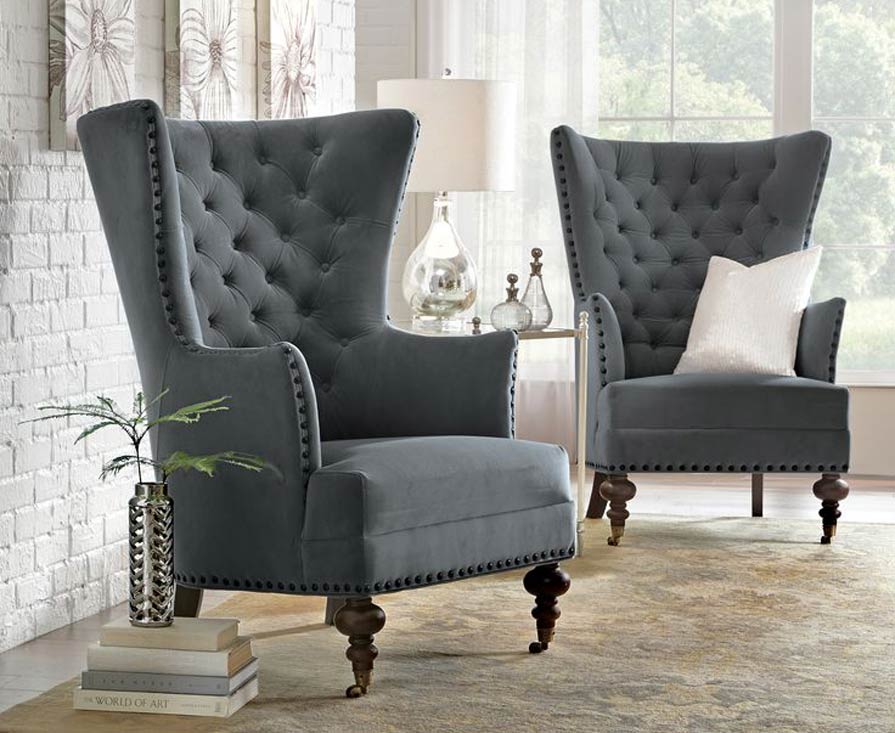
Finding the Perfect Fit: Size and Comfort
Beyond style and aesthetics, comfort is paramount. After all, an armchair is meant to be enjoyed, not just admired. Finding the right size and ensuring a comfortable seating experience are crucial considerations.
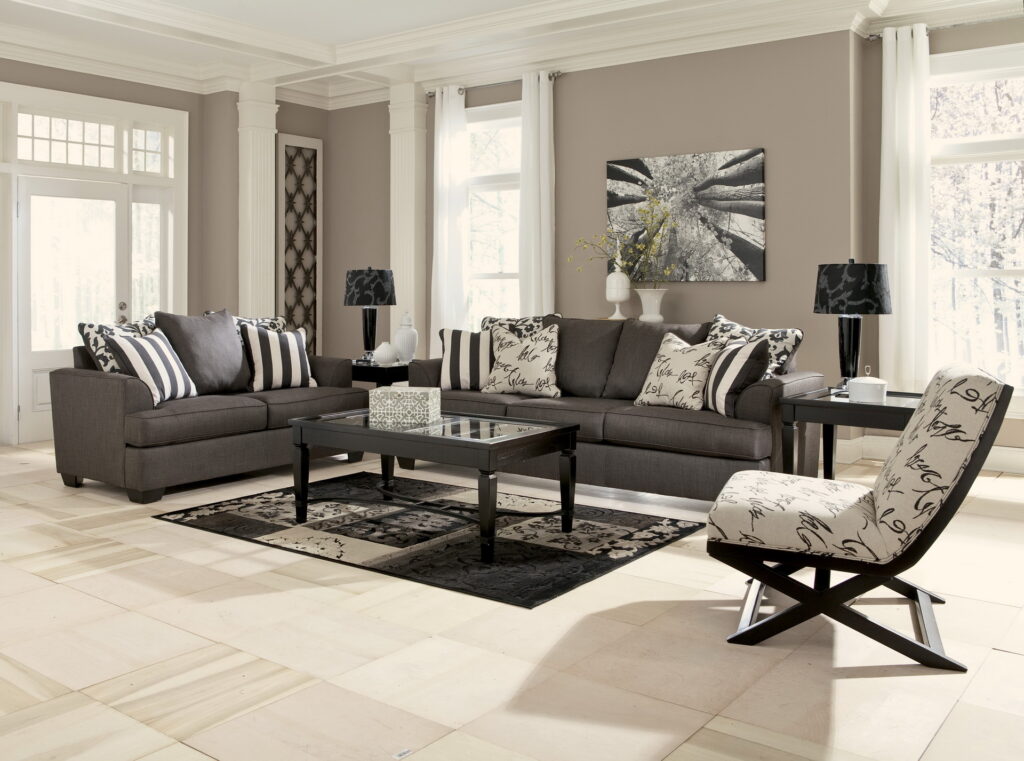
Determining the Ideal Size for Your Space
The size of your armchair should be proportional to the size of your living room and the other furniture pieces. A large armchair in a small room can feel cramped and overwhelming, while a small armchair in a large room can feel lost and insignificant.
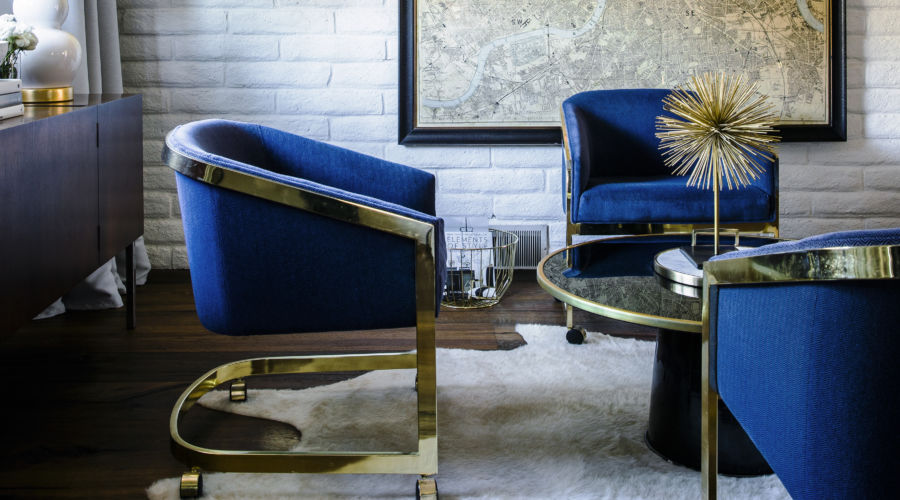
- Seat Height: The seat height should be comfortable for you to sit and stand up. A good rule of thumb is to choose a seat height that is similar to the height of your knees.
- Seat Depth: The seat depth should be deep enough to allow you to sit comfortably without feeling cramped. A good rule of thumb is to choose a seat depth that is slightly longer than your thighs.
- Arm Height: The arm height should be comfortable for you to rest your arms. A good rule of thumb is to choose an arm height that is slightly lower than your elbows.
- Overall Dimensions: Consider the overall dimensions of the armchair to ensure it fits comfortably within the space and doesn’t obstruct pathways or create awkward traffic patterns.
Measure the available space carefully and choose an armchair that fits comfortably without overcrowding the room.
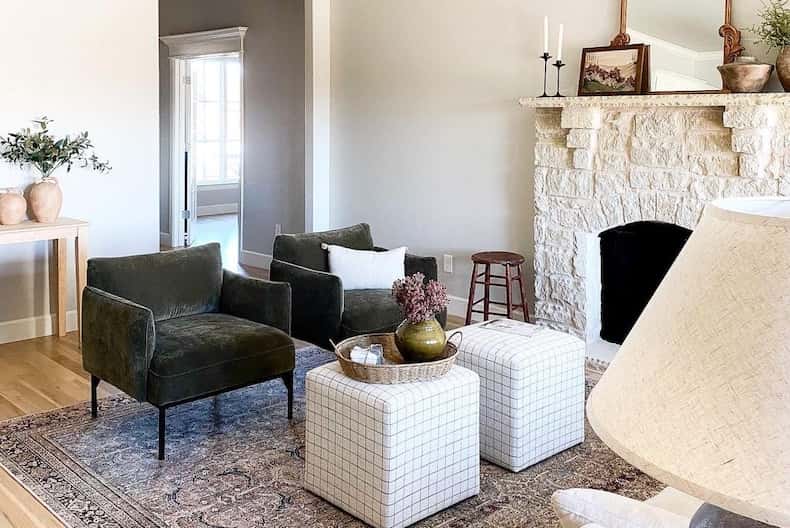
Prioritizing Comfort Features
Comfort is subjective, but there are certain features that can enhance the overall seating experience:
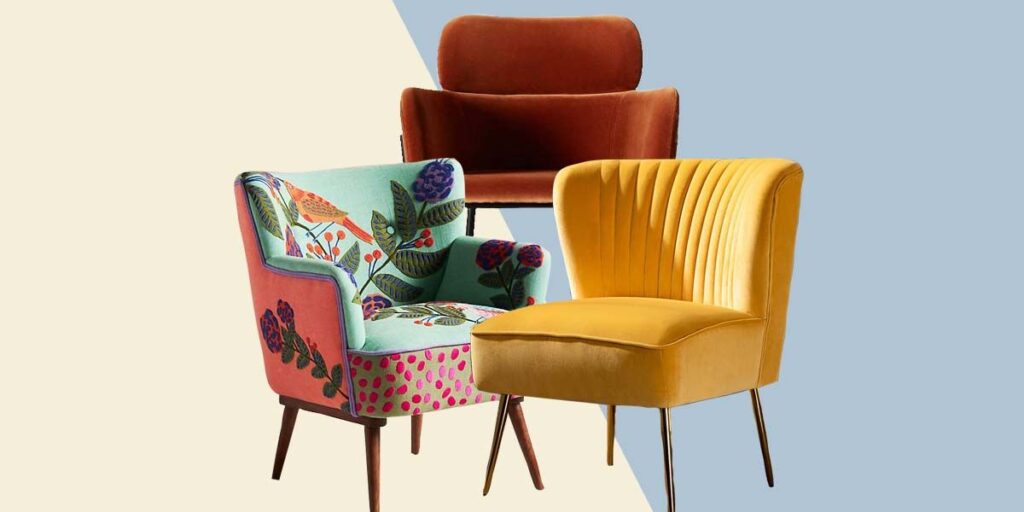
- Cushion Fill: Consider the type of cushion fill, such as foam, down, or a combination of both. Foam cushions provide support and durability, while down cushions offer a softer and more luxurious feel.
- Spring System: The spring system provides support and resilience. Look for armchairs with sinuous springs or pocket coil springs for optimal comfort.
- Back Support: Ensure the armchair provides adequate back support, especially if you plan on spending long periods of time sitting in it.
- Armrest Height and Width: Consider the height and width of the armrests to ensure they are comfortable for you to rest your arms.
Sit in the armchair before purchasing it to assess its comfort level. Pay attention to the cushion fill, spring system, back support, and armrest height.
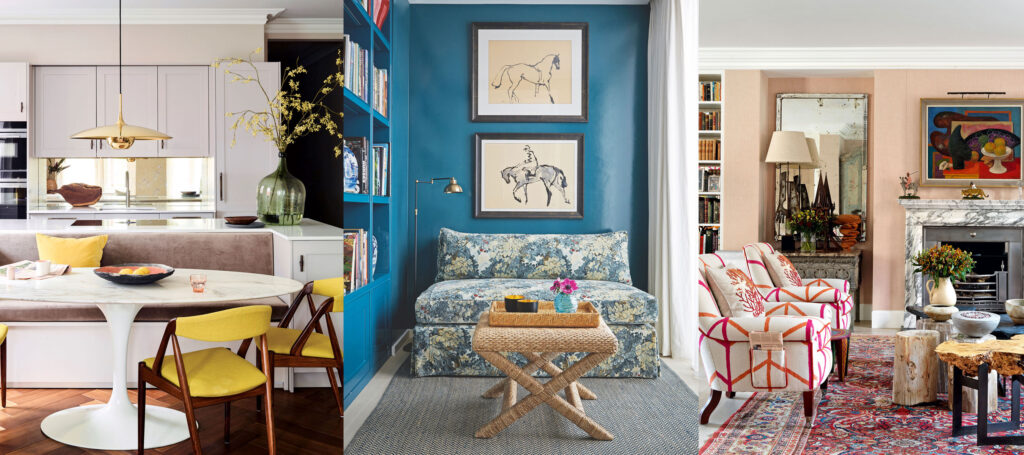
Testing the Armchair Before You Buy
Whenever possible, visit a furniture store and test out the armchair before you buy it. Sit in it for a few minutes to get a feel for its comfort level. Consider the following factors:
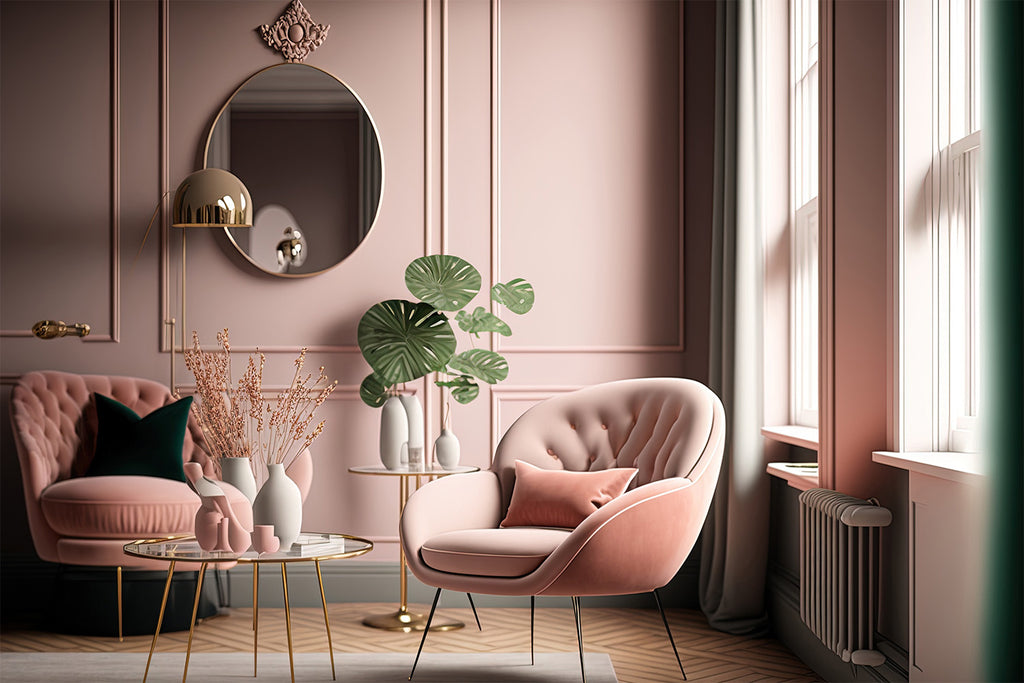
- Is the seat height comfortable?
- Is the seat depth adequate?
- Is the back support sufficient?
- Are the armrests comfortable?
- Does the armchair feel sturdy and well-made?
If you’re purchasing the armchair online, read reviews carefully and look for detailed descriptions of the comfort features.
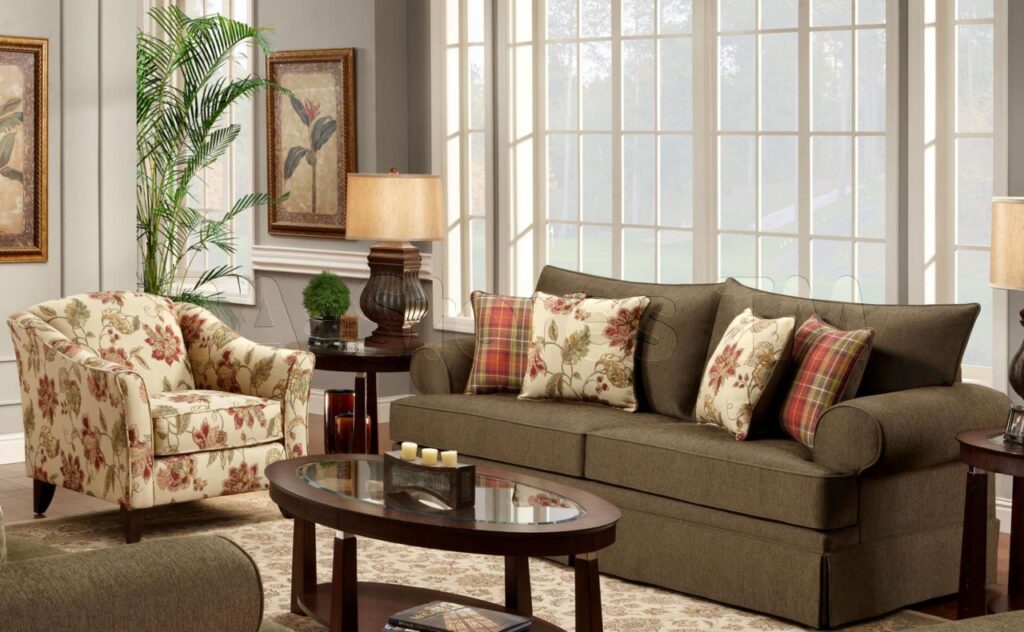
Strategic Placement for Maximum Impact
The placement of your accent armchair is just as important as the style, fabric, and comfort. Strategic placement can enhance the room’s flow, create visual interest, and maximize the armchair’s functionality.
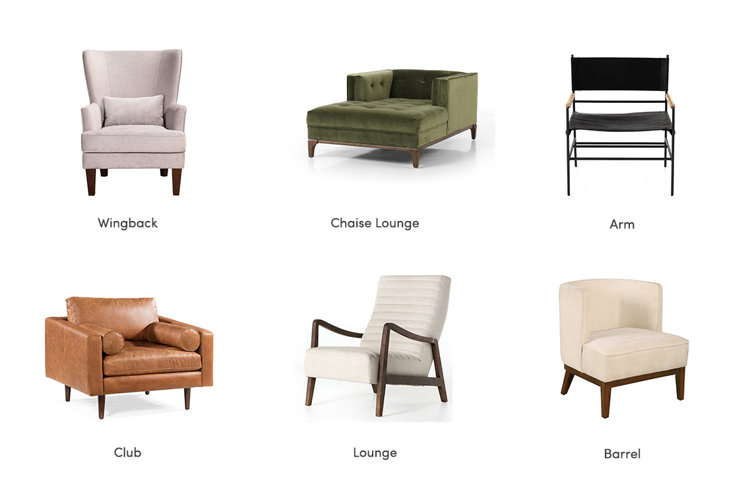
Optimizing the Room’s Flow and Layout
Consider the traffic flow and layout of your living room when placing the armchair. Ensure it doesn’t obstruct pathways or create awkward traffic patterns. Position the armchair to encourage conversation and interaction.
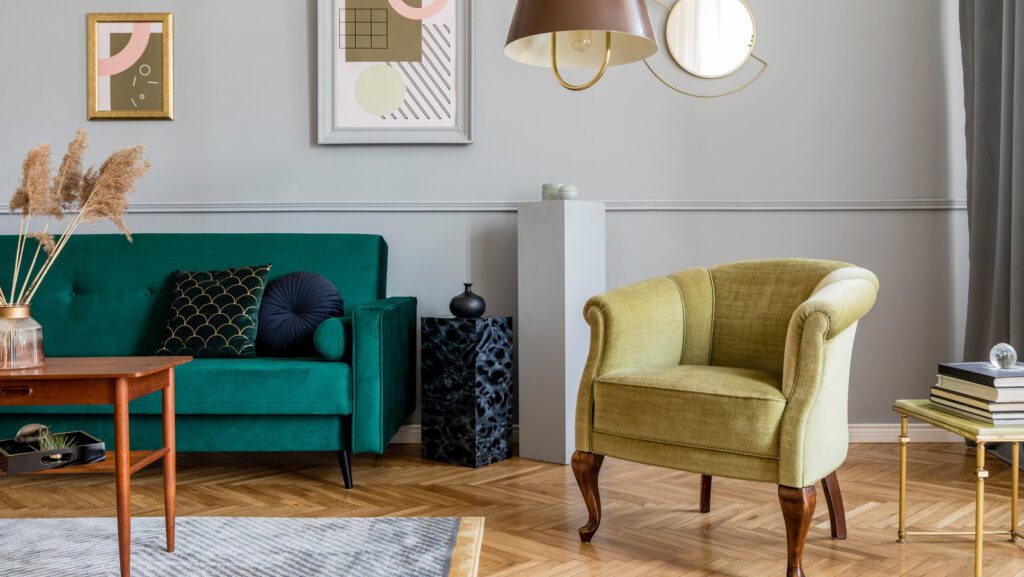
- Conversation Area: Place the armchair opposite your sofa to create a cozy conversation area.
- Reading Nook: Position the armchair near a window or bookshelf to create a comfortable reading nook.
- Focal Point: Use the armchair to enhance existing focal points in the room, such as a fireplace or a large window.
Experiment with different placements to find the one that best optimizes the room’s flow and layout.
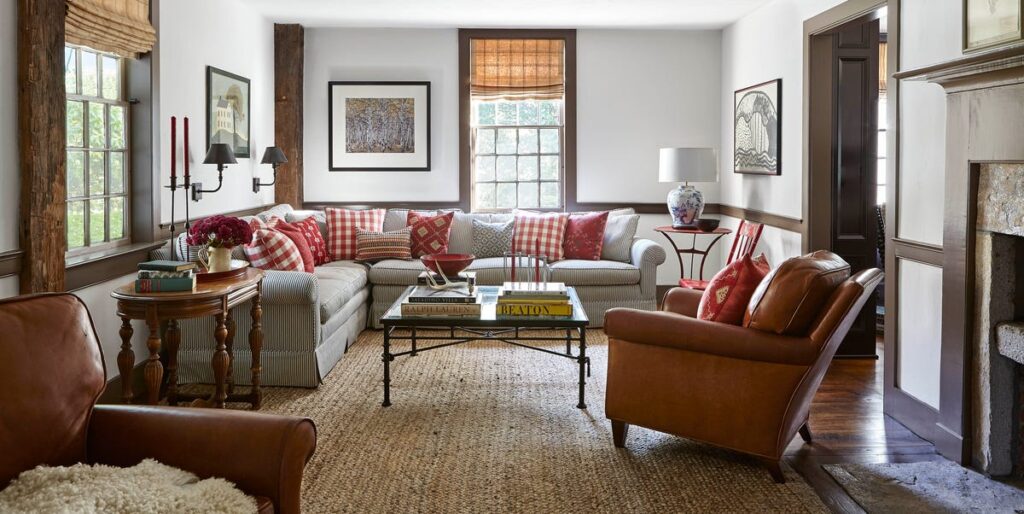
Creating Visual Balance and Harmony
Use the armchair to create visual balance and harmony in your living room. Consider the size, shape, and color of the armchair in relation to the other furniture pieces.
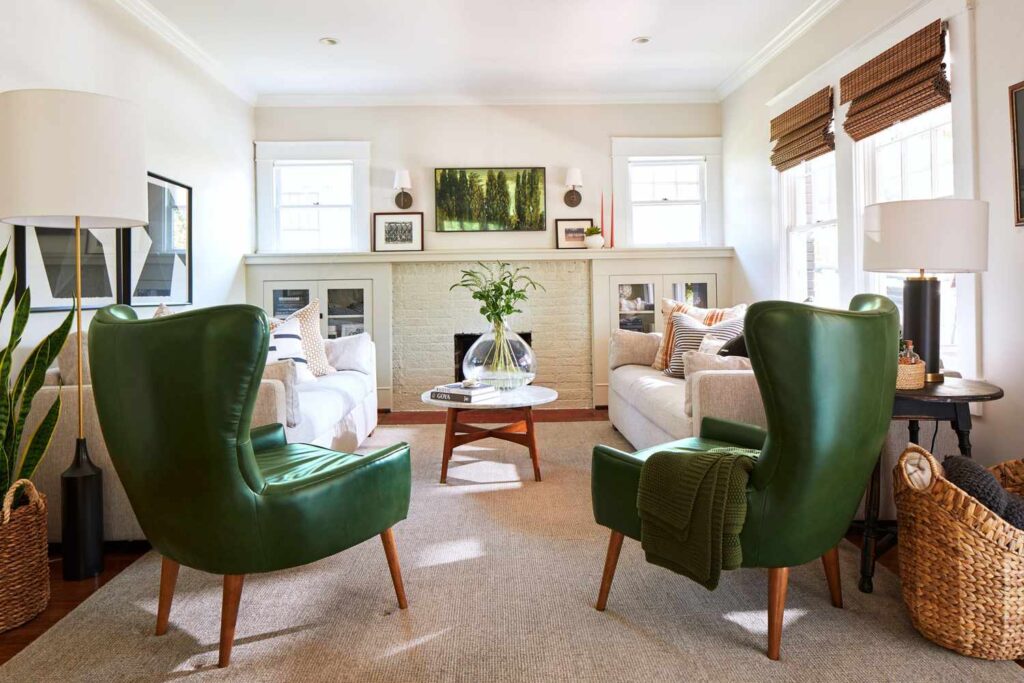
- Symmetry: Place two matching armchairs on either side of a fireplace or sofa to create a symmetrical and balanced look.
- Asymmetry: Use an armchair to balance out a heavier piece of furniture, such as a large sofa.
- Color and Texture: Choose an armchair with a color or texture that complements the other elements in the room.
Strive for a balanced and harmonious composition that is pleasing to the eye.
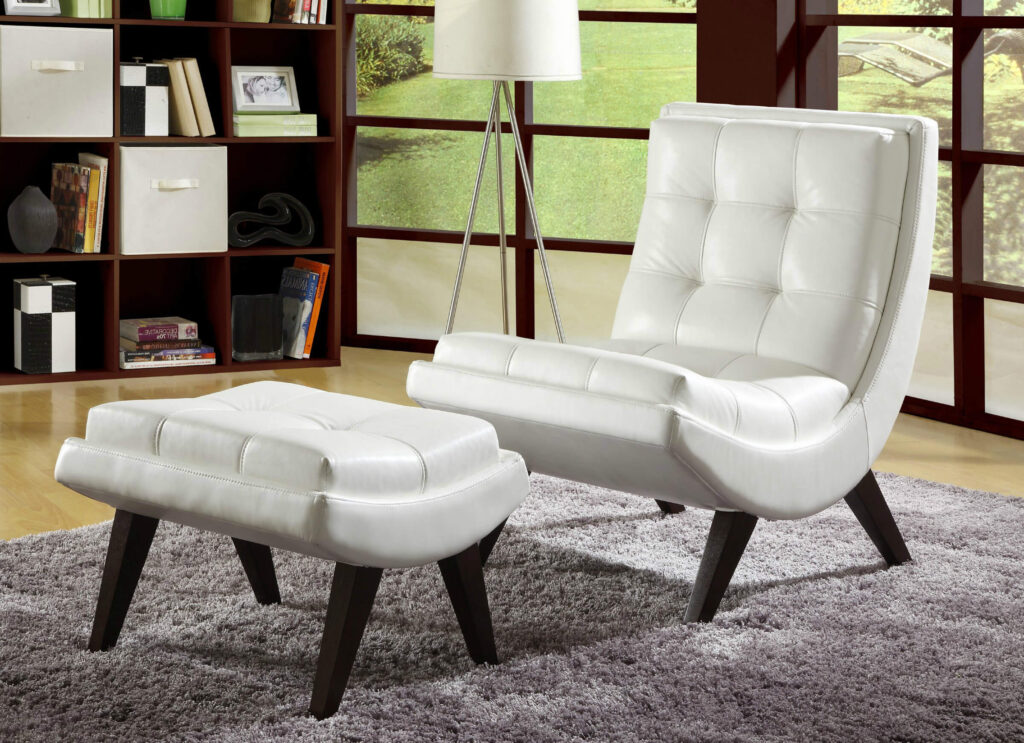
Using the Armchair as a Focal Point
The armchair can also serve as a focal point in your living room. Choose an armchair with a unique design, bold color, or eye-catching pattern to draw attention and add personality to the space.
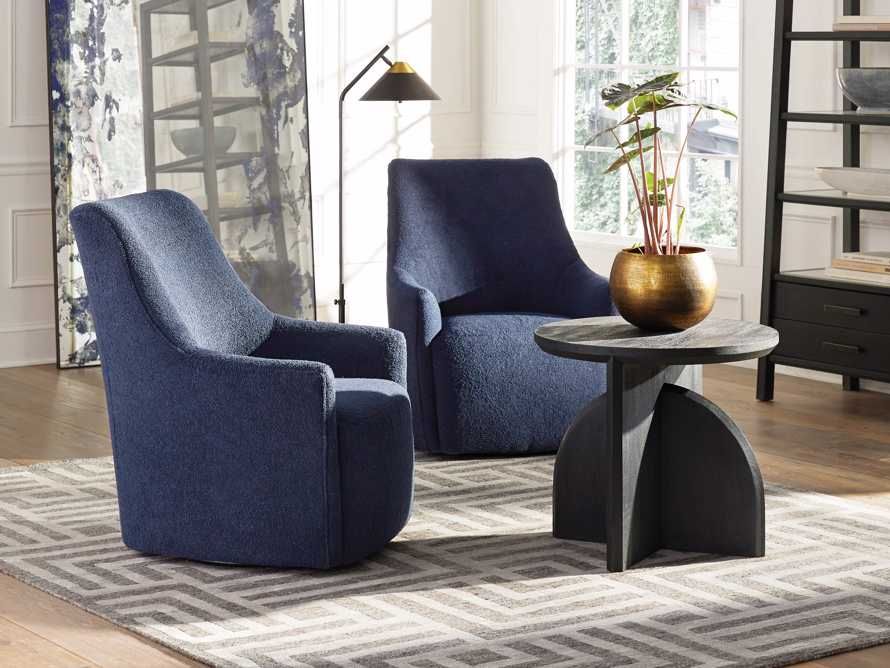
- Bold Color: Choose an armchair in a bold color that contrasts with the rest of the decor.
- Unique Design: Select an armchair with a unique silhouette or distinctive details.
- Eye-Catching Pattern: Choose an armchair with an eye-catching pattern that adds visual interest.
Position the armchair in a prominent location to maximize its impact as a focal point.
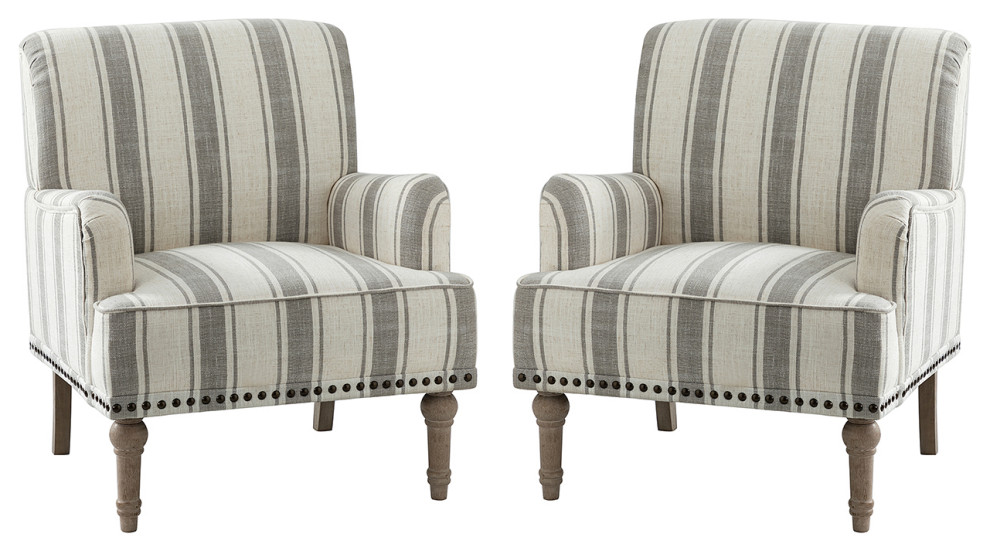
Accessorizing Your Armchair for Added Comfort and Style
Once you’ve chosen and placed your accent armchair, accessorize it to enhance its comfort and style.

Adding Throw Pillows for Comfort and Style
Throw pillows are an easy and affordable way to add comfort, color, and pattern to your armchair. Choose throw pillows that complement the armchair’s fabric and color scheme. Experiment with different sizes, shapes, and textures to create a unique and personalized look.

Draping Throw Blankets for Warmth and Texture
Throw blankets add warmth, texture, and a touch of coziness to your armchair. Choose throw blankets that are soft, comfortable, and visually appealing. Drape the throw blanket casually over the back or arm of the armchair.
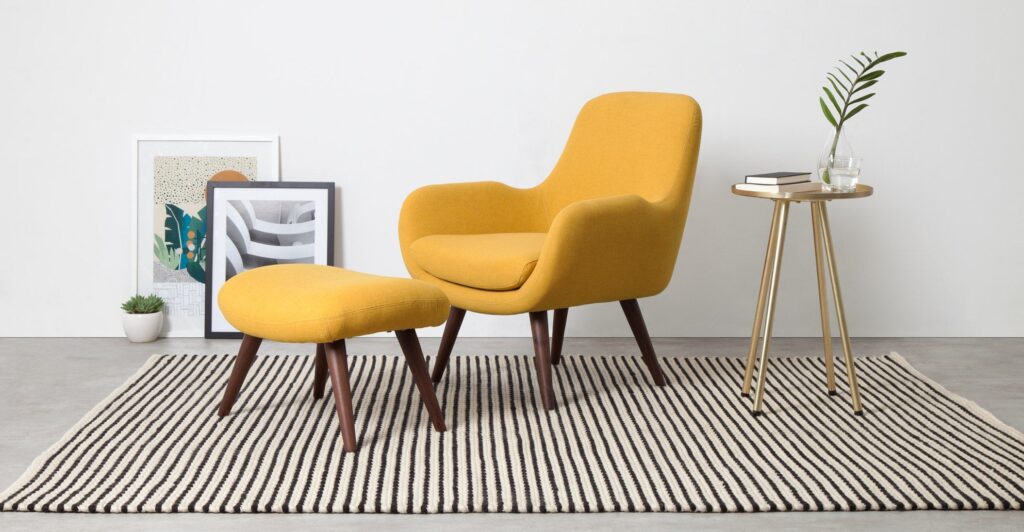
Incorporating Side Tables and Lighting
A side table and lamp can enhance the functionality of your armchair, providing a convenient place to set drinks, books, and other items. Choose a side table that is proportional to the size of the armchair and complements its style. Add a lamp with a warm and inviting light to create a cozy reading nook.
Conclusion: Creating a Living Room You Love
Choosing the perfect accent armchair for your living room is a journey that involves understanding your style, assessing your space, exploring different styles and materials, prioritizing comfort, and strategically placing the armchair for maximum impact. By following the tips and guidelines outlined in this guide, you can create a living room that is both beautiful and functional, a space that reflects your personality and provides a comfortable and inviting atmosphere for you, your family, and your friends. So, take your time, explore your options, and choose an armchair that you truly love. Your living room will thank you for it!
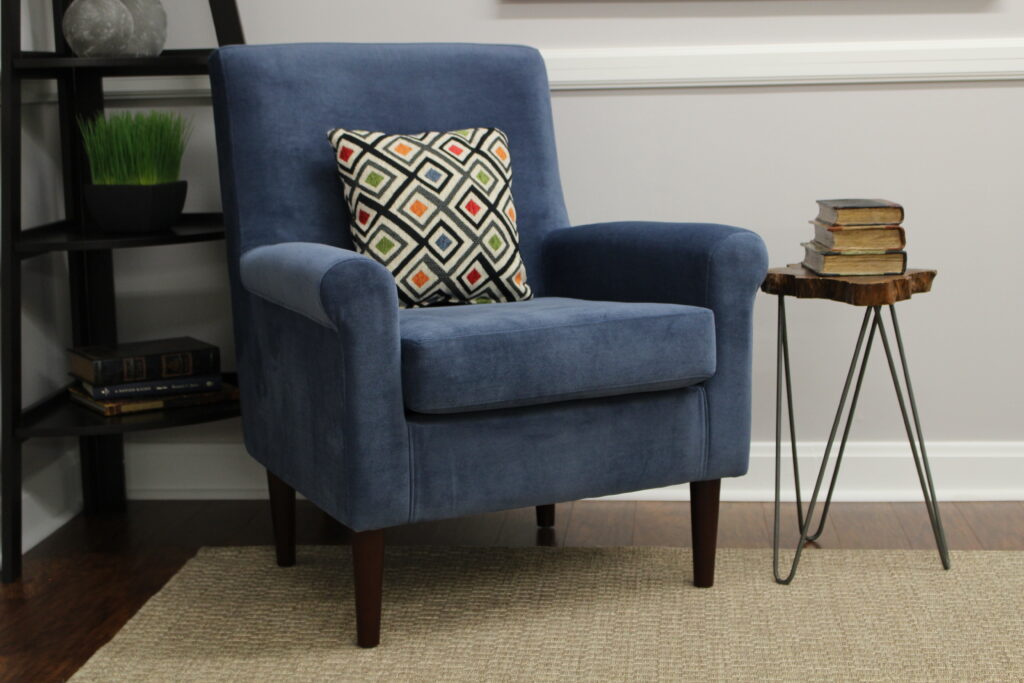
 Nimila
Nimila


